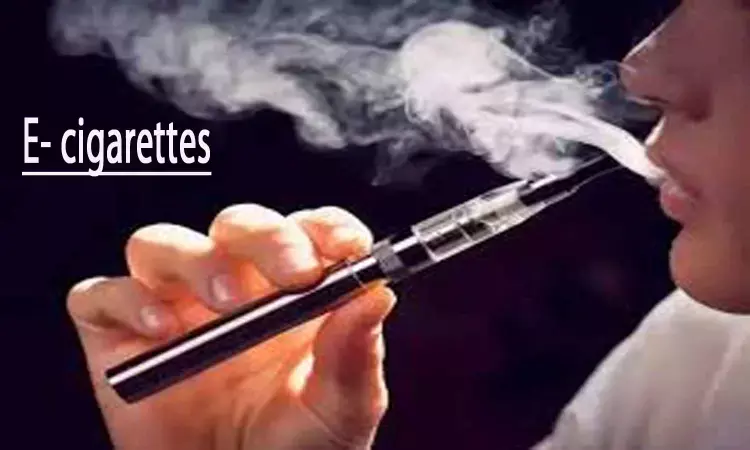- Home
- Medical news & Guidelines
- Anesthesiology
- Cardiology and CTVS
- Critical Care
- Dentistry
- Dermatology
- Diabetes and Endocrinology
- ENT
- Gastroenterology
- Medicine
- Nephrology
- Neurology
- Obstretics-Gynaecology
- Oncology
- Ophthalmology
- Orthopaedics
- Pediatrics-Neonatology
- Psychiatry
- Pulmonology
- Radiology
- Surgery
- Urology
- Laboratory Medicine
- Diet
- Nursing
- Paramedical
- Physiotherapy
- Health news
- Fact Check
- Bone Health Fact Check
- Brain Health Fact Check
- Cancer Related Fact Check
- Child Care Fact Check
- Dental and oral health fact check
- Diabetes and metabolic health fact check
- Diet and Nutrition Fact Check
- Eye and ENT Care Fact Check
- Fitness fact check
- Gut health fact check
- Heart health fact check
- Kidney health fact check
- Medical education fact check
- Men's health fact check
- Respiratory fact check
- Skin and hair care fact check
- Vaccine and Immunization fact check
- Women's health fact check
- AYUSH
- State News
- Andaman and Nicobar Islands
- Andhra Pradesh
- Arunachal Pradesh
- Assam
- Bihar
- Chandigarh
- Chattisgarh
- Dadra and Nagar Haveli
- Daman and Diu
- Delhi
- Goa
- Gujarat
- Haryana
- Himachal Pradesh
- Jammu & Kashmir
- Jharkhand
- Karnataka
- Kerala
- Ladakh
- Lakshadweep
- Madhya Pradesh
- Maharashtra
- Manipur
- Meghalaya
- Mizoram
- Nagaland
- Odisha
- Puducherry
- Punjab
- Rajasthan
- Sikkim
- Tamil Nadu
- Telangana
- Tripura
- Uttar Pradesh
- Uttrakhand
- West Bengal
- Medical Education
- Industry
WHO calls for ban on flavoured vapes, treating e-cigarettes the same as tobacco

London: The World Health Organization (WHO) on Thursday urged governments to treat e-cigarettes similarly to tobacco and ban all flavours, threatening cigarette companies' bets on smoking alternatives.
Some researchers, campaigners and governments see e-cigarettes, or vapes, as a key tool in reducing the death and disease caused by smoking. But the U.N. agency said "urgent measures" were needed to control them.
Citing studies, it said there was insufficient evidence that vapes helped smokers quit, that they were harmful to health and that they could drive nicotine addiction among non-smokers, especially children and young people.
Also Read:E-cigarettes most likely to affect young adults and adolescents with respiratory symptoms
More 13-15 year olds are using vapes than adults in all WHO regions helped by aggressive marketing, it continued.
"Kids are being recruited and trapped at an early age to use e-cigarettes and may get hooked to nicotine," said Tedros Adhanom Ghebreyesus, WHO Director-General, urging countries to implement strict measures.
Children 13–15-years old are using e-cigarettes at rates higher than adults in all WHO regions. In Canada, the rates of e-cigarette use among 16–19-year-olds has doubled between 2017–2022, and in England (the United Kingdom) the number of young users has tripled in the past three years.
“E-cigarettes target children through social media and influencers, with at least 16 000 flavours. Some of these products use cartoon characters and have sleek designs, which appeal to the younger generation. There is an alarming increase in the use of e-cigarettes among children and young people with rates exceeding adult use in many countries,” Dr Ruediger Krech, WHO Director for Health Promotion.
The WHO called for changes, including bans on all flavouring agents like menthol, and the application of tobacco control measures to vapes. Those include high taxes and bans on use in public places.
The WHO has no authority over national regulations, and only provides guidance. But its recommendations are often adopted voluntarily.
The WHO and some other anti-tobacco organisations are pushing for stricter regulations on newer nicotine products, taking aim at the alternatives on which some cigarette giants like Philip Morris International (PM.N) and British American Tobacco (BATS.L) are basing their future strategies.
Industry players like Imperial Tobacco (IMB.L) and the UK Vaping Industry Association said vapes pose significantly lower health risks than tobacco and help reduce its harms, while flavours are key in encouraging smokers to switch - a position shared by some tobacco control advocates.
Cancer Research UK, for example, says that while e-cigarettes are not risk-free and should only be used to stop smoking, there is no good evidence they cause cancer, whereas smoking causes at least 15 different kinds.
"Regulating vapes like cigarettes would only serve to reinforce misunderstandings about the relative risks of vaping and send the wrong message to smokers," said Marina Murphy, senior director of scientific and medical affairs at vaping firm ANDS, adding the WHO's position was "detached from reality".
The WHO said while long-term health risks were not understood, vapes generated some substances known to cause cancer, posed risks to heart and lung health and could affect brain development in young people.
The tobacco industry profits from destroying health and is using these newer products to get a seat at the policy-making table with governments to lobby against health policies. The tobacco industry funds and promotes false evidence to argue that these products reduce harm, while at the same time heavily promoting these products to children and non-smokers and continuing to sell billions of cigarettes, the release noted
Kajal Rajput joined Medical Dialogues as an Correspondent for the Latest Health News Section in 2019. She holds a Bachelor's degree in Arts from University of Delhi. She manly covers all the updates in health news, hospitals, doctors news, government policies and Health Ministry. She can be contacted at editorial@medicaldialogues.in Contact no. 011-43720751


